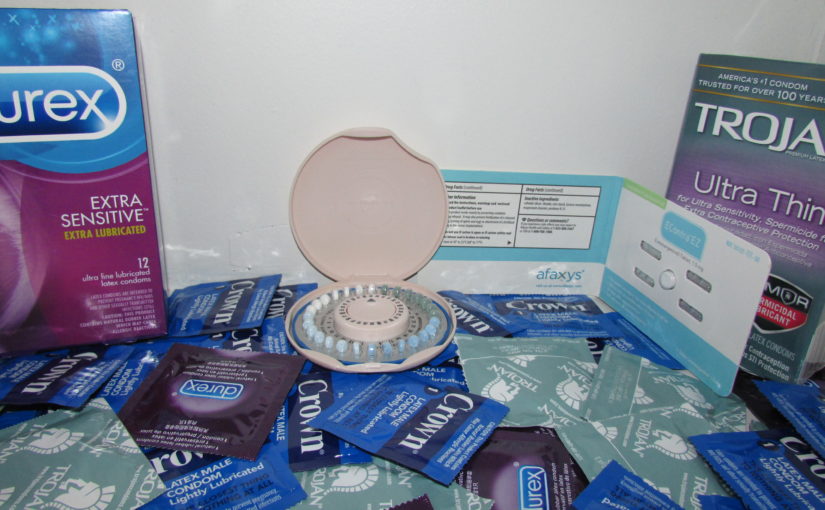Sex is hidden, but it happens: it is something people do not discuss openly, therefore birth control is hidden, which causes many confusions and unknown forms. People do not think about the advantages of birth control other than preventing pregnancy.
By learning about birth control, one is not only learning of the reasons for that product, but they are also able to learn more of how their body operates. Often health classes and parents do not explain it clearly enough for people to understand, therefore causing a gap within peoples’ knowledge.
Laura Wilner has been working in reproductive health for around 20 years and has been with Planned Parenthood as a Women’s Health Nurse Practitioner for 10 years.
“I think in general just learning about your body and learning about birth control is important,” Wilner explained. She shared that it’s important to be knowledgeable about your own body and how it works.

Birth control goes beyond the typical “this is how to put a condom on a banana” teaching.
“I think there’s more misinformation about how their body works versus birth control – not everybody is really aware of how ovulation occurs, how pregnancy actually occurs,” WIlner said.
Birth control is not just something you can use to prevent pregnancy or STDs, there are other benefits that many do not discuss. It can help prevent heavy periods, which for some women are the cause of missing class or work because of the pain they endure during that week. It can also help prevent Endometrial and Ovarian Cancer, anemia (from having too much blood loss each month) and mood that are associated with periods.
“Sometimes for college students we help college athletes who don’t want to have periods or problems with periods especially athletes that are competing at really high levels,” Wilner shared.
There are many myths that people still believe today about birth control, which Wilner debunked.
- Women who have had children are the only ones who can have IUDs. This is how they originally advertised IUDs, but it is not the case.
- Weight gain in birth control pills is not a listed side effect, although many believe it to be true it has not been confirmed.
- Taking birth control will affect your fertility negatively, although fertility may take longer to return after using some birth control options, they are not life-long problem.
Some truth’s Wilner confirmed were:
- Spermicide can cause more infections, such as yeast infections, urinary tract infections, etc.
- Condoms can break down from certain types of oils, so she advises to use water-based lubricants if needed.
To provide patients with the most information and options they give a chart of birth control effectiveness and start with the most effective working down to the least to find what works for them.
“Let them (patients) really think about which option might be the best for them, and which one might work the best for their schedule, or the best for their body,” Wilner explained.
Implants and Intrauterine Devices (IUDs) are the most affective for reversible options, otherwise male sterilization (vasectomy) and female sterilization (abdominal, Laparoscopic, Hysteroscopic “tubes tied”) are the most effective for permeant, for only 1 in 100 people become pregnant in a year from these options.
Breast feeding, shot, pill, patch, ring and diaphragm have a statistic of “2-12 pregnancies per 100 people in a year.” Then male condom, female condom, withdrawal, sponge, fertility awareness-based methods, spermicide and cervical cap have the statistic of “18 or more pregnancies per 100 people in a year” therefore making them the least effective.
Wilner explained how many are well-informed by the internet, so they know their options, but sometimes there are more negative stories online because people do not share the positive stories.

There are many options for birth control depending on that person’s preferences.
“The IUDs and arm implants are sometimes there’s information out that that scares people a little bit – because they’ve read stories on the internet,” Wilner said. With friend’s people are able to hear the positive stories, so it helps ease the negativity of the internet.
Men should be just as informed about birth control as women. “I think it’s really important that they’re (men) an active participant in birth control and that it isn’t just an issue for women and that they should also be taking part in that decision and being supportive of wearing condoms and not making that more difficult,” Wilner said.
Planned Parenthood encourages people to use condoms even if they are on birth control for it prevents from STDs.
“The failure rate of condoms, using it as birth control – is verily high, so that’s why using a more effective method of birth control is good and then using a condom as it can be used as a back up to your birth control and preventing STDs,” Wilner explained.
Planned Parenthood sees mostly people from ages 18-24 but is open to all ages. They have a sliding fee scale, so services are depended upon insurance and income, the income tells how much people must pay for that service, therefore most college students get their services for free.
For more information on birth control you can go to the Planned Parenthood website, NDSU Student Health, or your primary physician.
